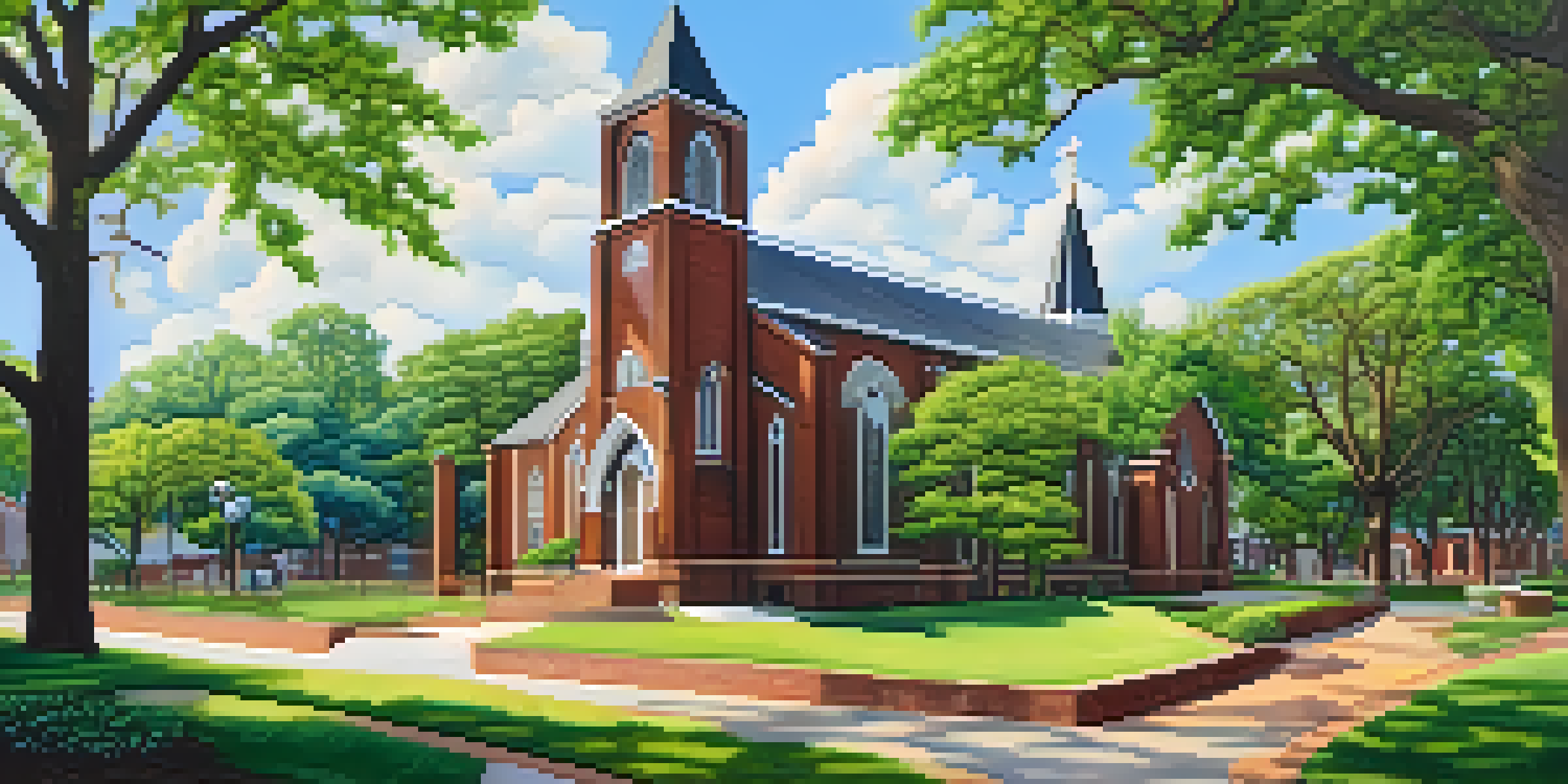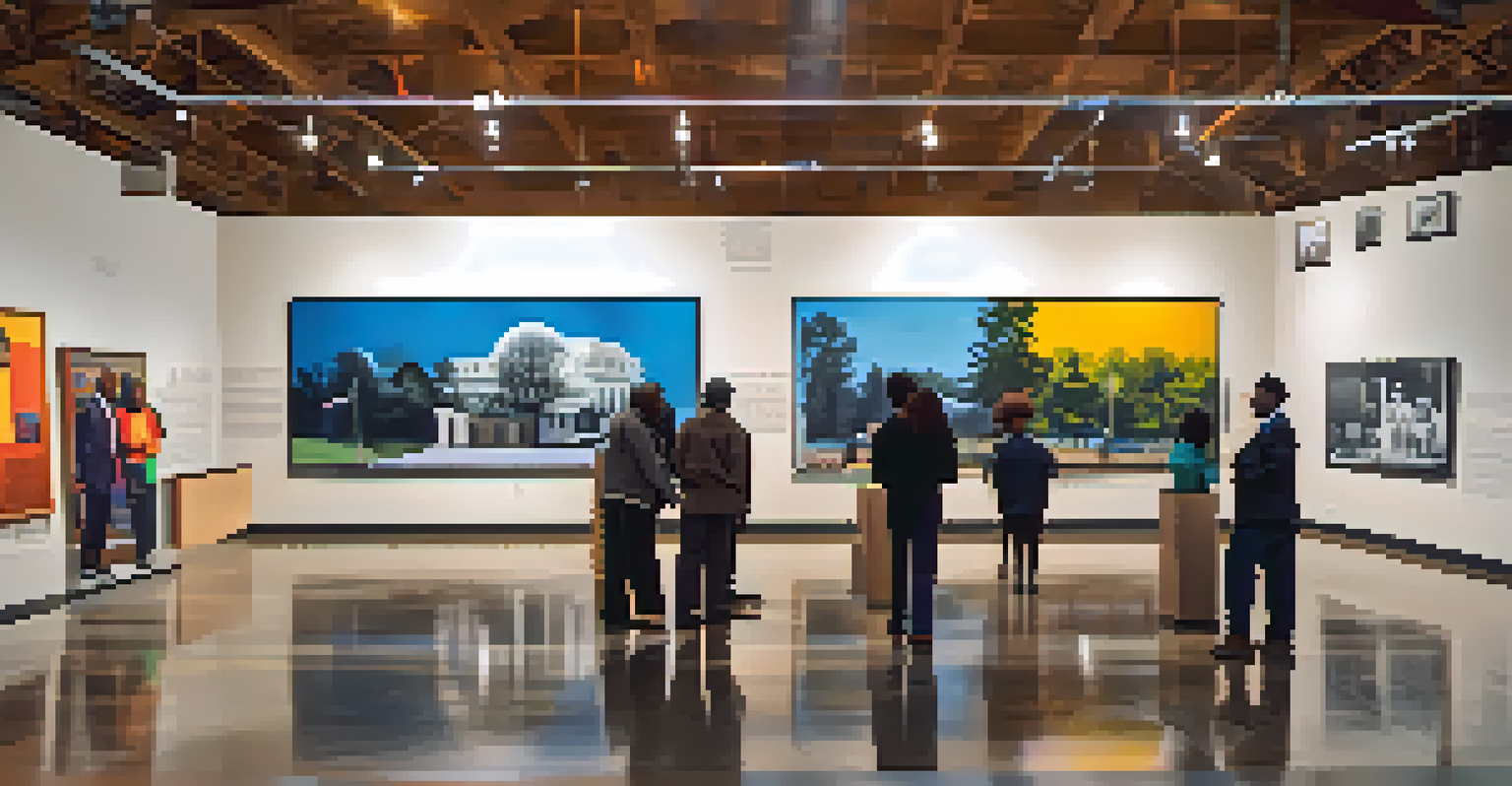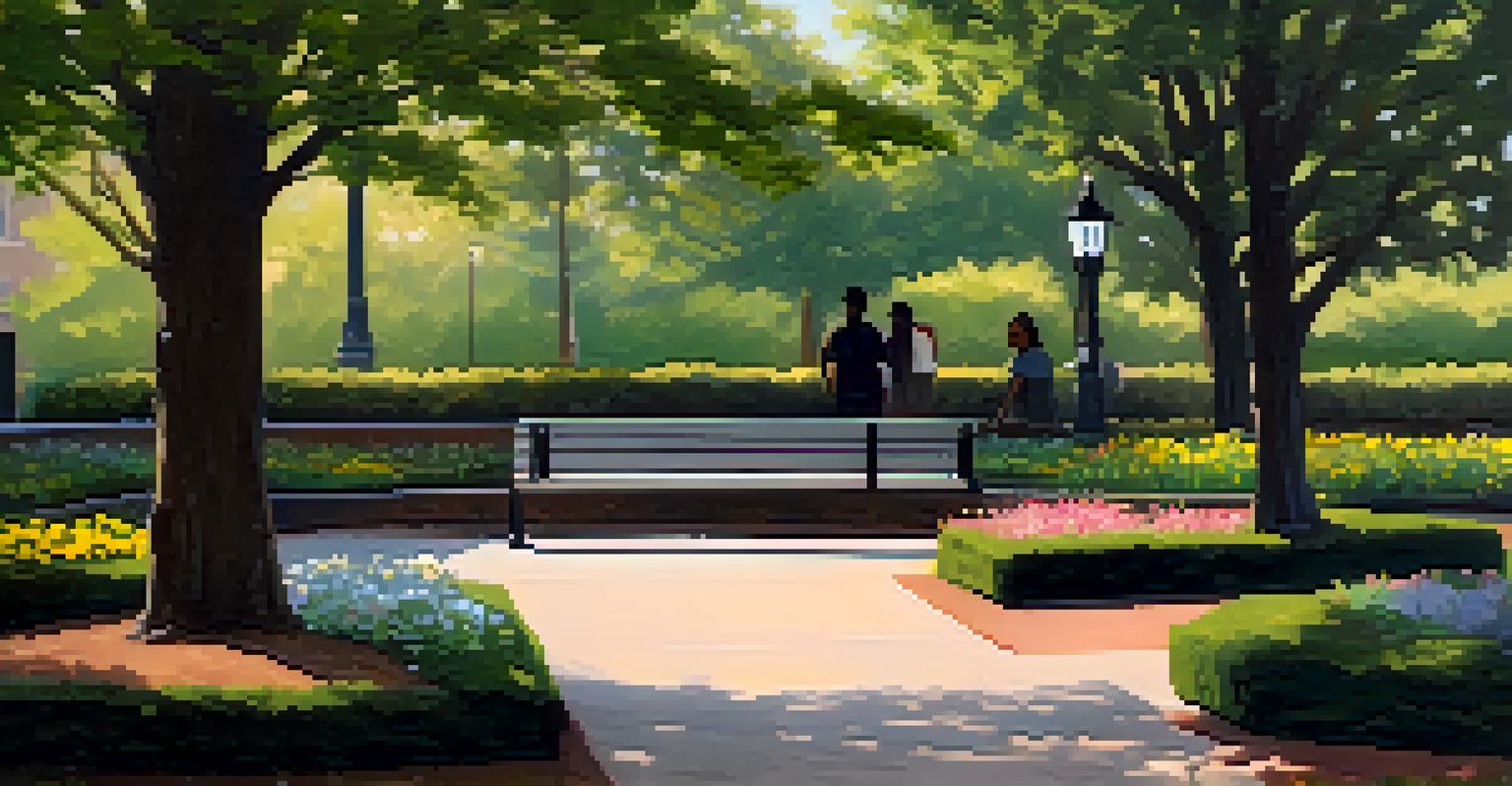The Martin Luther King Jr. National Historical Park in Atlanta

Introduction to the Martin Luther King Jr. National Historical Park
The Martin Luther King Jr. National Historical Park is a powerful tribute to the life and legacy of Dr. King. Located in Atlanta, Georgia, this park encompasses several significant sites that reflect the civil rights movement's rich history. Visitors can experience the profound impact of King's work and the values he stood for, making it a vital destination for those seeking to understand America's struggle for equality.
Injustice anywhere is a threat to justice everywhere.
One of the park's highlights is the Ebenezer Baptist Church, where Dr. King preached and where his influence grew. This historic church is not just an architectural gem; it serves as a reminder of the faith that fueled the civil rights movement. Walking through these sacred spaces allows visitors to connect deeply with the past and appreciate the sacrifices made for justice.
In addition to the church, the park includes the Martin Luther King Jr. Center for Nonviolent Social Change, which offers educational resources and exhibits. Here, guests can explore artifacts, photographs, and films that chronicle King's journey and the broader civil rights movement. This immersive experience helps visitors grasp the complexity and urgency of the fight for civil rights in America.
Key Sites Within the Historical Park
The park features several key sites that celebrate Dr. King's legacy, including his childhood home. Visiting this modest house allows guests to gain insight into Dr. King's upbringing and the values instilled in him by his family. It's a poignant reminder that great leaders often come from humble beginnings.

Another significant site is the King Center, which serves as a memorial to Dr. King and his wife, Coretta Scott King. The center houses their final resting place and emphasizes the importance of their shared vision for peace and equality. This serene space encourages reflection on the ongoing challenges that society faces regarding civil rights.
Explore Dr. King's Legacy
The Martin Luther King Jr. National Historical Park showcases key sites like his childhood home and Ebenezer Baptist Church that reflect his impactful life and the civil rights movement.
The Visitor Center is a great starting point for your journey through the park, offering valuable information and resources. It showcases exhibits that delve into the historical context of the civil rights movement and Dr. King's philosophy of nonviolence. This foundational knowledge enriches your understanding as you explore the surrounding sites.
Understanding Dr. King's Philosophy of Nonviolence
At the heart of the Martin Luther King Jr. National Historical Park is the philosophy of nonviolence that Dr. King championed. This approach was rooted in the teachings of Mahatma Gandhi and emphasized love and understanding over hatred and violence. By embracing nonviolence, King sought to create a more just society without perpetuating cycles of anger and retribution.
Faith is taking the first step even when you don't see the whole staircase.
Visitors to the park can engage with Dr. King's teachings through various educational programs and workshops. These experiences illuminate how nonviolence was not just a strategy but a way of life for King and his followers. Understanding this philosophy provides essential context for the struggles faced during the civil rights movement.
The park's commitment to nonviolence continues to inspire people today, encouraging them to approach conflicts with empathy and dialogue. In a world still grappling with issues of injustice, the park serves as a beacon of hope, illustrating the profound impact of Dr. King's teachings on future generations.
The Role of the Civil Rights Movement
The Martin Luther King Jr. National Historical Park is a testament to the broader civil rights movement that shaped American history. This movement was not just about one man's struggle but a collective fight for equality and justice that involved countless individuals. The park stands as a reminder of the courage and resilience that characterized this pivotal era.
Many significant events took place in Atlanta, making it a crucial location for civil rights activism. The park highlights the various grassroots efforts that fueled the movement, including protests, sit-ins, and marches. These actions were instrumental in raising awareness and pushing for legislative changes that would eventually transform society.
Embrace Nonviolence Philosophy
Dr. King's philosophy of nonviolence, rooted in love and understanding, continues to inspire visitors and advocates for social justice today.
Today, the park serves as both a historical site and a center for social justice advocacy. It encourages visitors to reflect on the lessons learned from the past and consider their role in continuing the fight for equality. This connection to history empowers individuals to take action in their communities, fostering a sense of responsibility and purpose.
Visitor Experience and Activities
Visiting the Martin Luther King Jr. National Historical Park is a unique experience that combines education, reflection, and inspiration. The park offers guided tours that delve into the life and legacy of Dr. King, providing visitors with a deeper understanding of his impact. These tours often include storytelling and anecdotes that bring history to life, making it relatable and engaging.
In addition to guided tours, the park hosts various events, workshops, and discussions throughout the year. These activities are designed to foster dialogue about social justice and equality, encouraging visitors to engage with contemporary issues. Participating in these events can be a powerful way to connect with others who share a commitment to change.
The park also features beautiful green spaces and areas for quiet reflection. After exploring the historical sites, visitors can take a moment to sit in the gardens or along the pathways, allowing the significance of their experience to sink in. This combination of education and tranquility makes for a fulfilling visit.
Planning Your Visit to the Park
Planning a visit to the Martin Luther King Jr. National Historical Park is easy, with no entrance fee required. However, it's always good to check the park's official website for hours, special events, and any temporary closures. This ensures that you make the most of your time and don’t miss out on any unique experiences.
Getting to the park is convenient, as it's located in the heart of Atlanta, with ample public transportation options available. Whether you choose to drive or take public transit, the park is easily accessible, making it a great option for both locals and tourists. Once there, you'll find well-marked paths and informative signage to guide you along your journey.
Visit for Education and Reflection
The park offers an engaging visitor experience with guided tours, workshops, and serene spaces for reflection, fostering a deeper understanding of civil rights history.
Remember to wear comfortable shoes, as there's plenty to see and explore. Taking your time to absorb the rich history will enhance your experience. Bring along your camera to capture moments, but also allow yourself to unplug and simply enjoy the atmosphere of such a significant site.
The Lasting Legacy of Dr. King
The Martin Luther King Jr. National Historical Park not only honors Dr. King's life but also serves as a reminder of the ongoing journey toward equality. His teachings continue to resonate today, inspiring individuals and movements worldwide. The park stands as a powerful symbol of hope, encouraging future generations to strive for justice.
Dr. King’s commitment to nonviolence and social change has influenced countless activists and leaders. The park's dedication to education and advocacy helps ensure that his message remains relevant in today's context, highlighting the importance of community engagement in the fight for civil rights. This legacy is essential for fostering a culture of understanding and empathy.

As visitors leave the park, they carry with them the spirit of Dr. King and the lessons learned from the civil rights movement. The park encourages each person to reflect on their role in promoting equality and justice in their communities. In doing so, Dr. King's legacy lives on, inspiring action and hope for a better future.